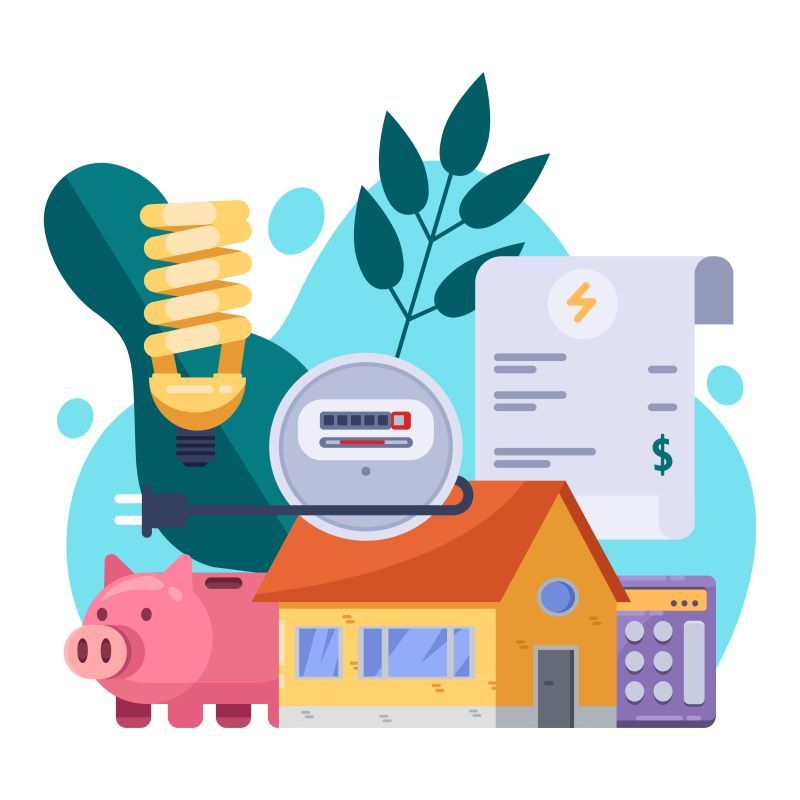The arrival of summer often heralds higher temperatures and, unfortunately, increased utility bills. As the mercury rises, so does the reliance on air conditioning and other cooling appliances, leading to a spike in energy consumption and costs. However, with a bit of savvy planning and some strategic measures, it's possible to enjoy a comfortable home without letting your utility expenses spiral out of control. Here’s how you can efficiently manage your energy use this summer and keep those bills in check.

Understanding Your Summer Energy Consumption
An essential first step towards managing your summer utility bills is to pinpoint exactly how energy is utilized within your home during these hotter months. The increased usage of air conditioning, along with refrigerators working overtime and fans whirring away, contributes significantly to energy consumption as households strive to maintain a comfortable living environment amidst the heat.
Additionally, longer daylight hours may reduce reliance on artificial lighting but could lead to increased use of televisions, computers, and other electronics as families seek indoor respite from the heat. Recognizing these consumption patterns is key to identifying potential areas where energy usage could be minimized.
Effective Energy-Saving Tactics
Fed up with the dent that summer energy costs are making in your budget? It’s time for a change. Consider these actionable tips to optimize your energy usage and bring those bills down:
- Air Conditioning Efficiency
Your air conditioning unit doesn't have to be a financial drain. By setting the thermostat at a moderate yet comfortable temperature, such as 78°F (25°C), and ensuring regular maintenance for optimal performance, you can enjoy cool air without excessive energy use.
- Leverage Natural Cooling
Take advantage of the cooling power of fresh air by opening windows during cooler parts of the day to facilitate airflow through your home. This simple act can provide significant relief from the heat without any cost.
- Choose Energy-Efficient Appliances
When shopping for new appliances, look for those with an Energy Star rating. Although they may have a higher initial price tag, their efficient energy use will lead to savings on your utility bills over time.
- Smart Appliance Use
Be mindful about when and how you use appliances. Disconnect gadgets when they’re not in use and try to use heat-generating appliances during cooler periods of the day to avoid adding extra heat to your home.
- Innovative Cooling Alternatives
Exploring new methods of keeping your home cool can further reduce reliance on traditional air conditioning and contribute to a more sustainable lifestyle. Here are a few alternatives worth considering:
- Fans for Personal Cooling
Ceiling and stand-alone fans may not reduce room temperature, but by circulating air, they create a cooling effect that can make the heat more bearable, all while consuming less energy than AC units.
- Evaporative Coolers
For those in dry climates, evaporative coolers offer an efficient way to cool indoor spaces by using water evaporation, providing a cost-effective alternative to traditional air conditioning.
- Heat-Blocking Window Treatments
Applying window films or installing reflective blinds can significantly decrease the amount of heat entering your home, helping to keep indoor spaces cooler without additional energy consumption.
- Utilizing Shade
Planting trees or installing awnings to shade your windows from direct sunlight can naturally reduce indoor temperatures, enhancing both the comfort and aesthetic appeal of your home.
- Support from Government and Rebate Programs
Many governments and utility companies offer programs and rebates designed to encourage energy efficiency and sustainable practices among homeowners. These incentives can help mitigate the costs associated with making energy-saving home improvements:
- Rebates on Efficient Appliances
Take advantage of government or utility rebates when purchasing energy-efficient appliances to enjoy upfront savings on products that will also reduce your long-term energy costs.
- Tax Incentives for Green Upgrades
Certain energy-efficient home improvements may qualify for tax credits, offering financial benefits come tax season and encouraging more sustainable living practices.
- Rebates from Utility Providers
Some utility companies provide rebates for customers who take steps to reduce their energy usage, such as by installing efficient HVAC systems or participating in energy conservation programs.
- Incentives for Renewable Energy Adoption
Governments may offer subsidies or incentives for homeowners who install renewable energy systems, such as solar panels, making it financially easier to embrace green energy solutions.
- The Broader Impact of Reducing Energy Consumption
Conserving energy during the summer months has benefits that extend beyond just lower utility bills. It can also have a positive impact on the environment by reducing the demand for electricity and the associated greenhouse gas emissions. Additionally, energy-efficient home upgrades can enhance both the comfort and market value of your property, making energy conservation a smart choice for homeowners looking to invest in their homes and the planet.
Summer Strategies for Comfort Without Cost
With strategic planning and smart energy use, you can navigate through the summer months without letting your utility bills overheat. By investing in energy-efficient appliances, utilizing natural cooling methods, and taking advantage of government incentives, you can enjoy a cooler home and significant savings. This summer,